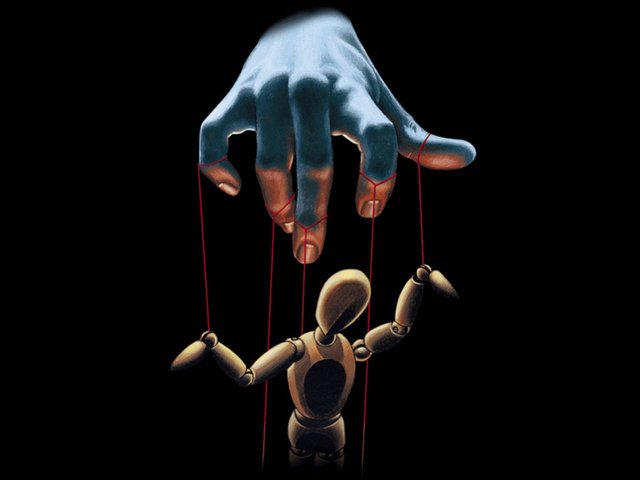Euthanasia and death penalty – pros and cons of playing God
For the sake of all definition-loving Steemians out there, let’s first define the terms that we are going to talk about today:
- Euthanasia is the practice of intentionally ending a life to relieve pain and suffering.
- Death penalty is a government-sanctioned practice whereby a person is put to death by the state as a punishment for a crime.
- Playing God refers to someone supposedly taking on the role of God for acts like deciding who is to live or die.
- Slippery slope effect refers to an event when a relatively small first step leads to a chain of related events culminating in some significant (usually negative) effect.
All definitions come from the esteemed Ms. Wikipedia.

The main prerequisite for further discussion of this topic is solving: “Should we consider playing God at all?” - I say yes, as long as it brings more benefits than harm. The only objection to this would be: “Even if it brings more benefits, who are we to play God?” - Well, with that attitude, we wouldn’t do pretty much anything. Who are we to lock up someone in a cell for his criminal acts? Who are we to force someone into a mental institution because of his dangerously insane behavior? Who are we to destroy someone who is bombarding our country from an airplane? Who are we to choose to save someone in a situation where not everyone can be saved? And the list goes on and on.
I’ve checked for meaningful arguments for and against euthanasia and death penalty and added the ones I consider the most relevant in the tables below.

I believe that euthanasia should be allowed, but only under very strict regulation and control, in order to avoid the slippery slope effect, in order to avoid the slippery slope effect. In other words, only the most extreme cases of tedious pain and suffering should be considered, and the final decision should be not just up to the patient but also up to a specialized group of medicine and psychology experts. I don’t think that the family should play an important role in decision-making, as it’s not their life and they don’t have the expertise either.

I’m not determined about the death penalty as I am for (the strictly regulated and controlled) euthanasia. However, for some of the people that have repeatedly committed the vilest atrocities, such as tortures, child rapes, mass murders… Under the condition that this has been proven “beyond reasonable doubt”, with the word “reasonable” being understood in a rigorous way, I believe that they should be executed. Why? Because there shuldn't be even a slightest chance of them escaping from the prison, being set free from the prison, or even hurting other prisoners. In order to annul this chance, they would have to be isolated and locked up in a cell for the rest of their lives, and this is, if you ask me, far crueler than killing them instantly (and with a physically painless death, of course).
I could have written much more about all of this, but I would prefer to hear your opinion and continue the discussion in the comments.
- If you liked this post then you would also probably like my post about reverse discrimination.
Have a wonderful day, week, and life!
I have the same opinion as you about Euthanasia. You have already highlighted the most important arguments. I would like to give an personal example... my grandmother had a stroke 4 years ago and is now not able to talk or move anymore. She still can understand and is aware of everything. It is like she is captured in her own body. Please don't get me wrong I love my grandmother so so much and I guess it is easier for me to still have her instead of losing her completely.. but I know that that was the least thing she wanted. I just can speak for myself. When I won't be able to talk or move anymore I would prefer to die. The problem would just be how to tell someone if I can't communicate anymore...
The discussion about death penalty is endless I guess.I personally could and would not want to take the responsibility for someones death. In my point of view it is wrong to kill someone because he killed someone before. Even if my reason would be more understandable it would not change the fact that I did the same thing, this chain would never end. Does a good intention make a bad action good?
No question this person has to be punished. Just like you said 'there shouldn't be even a slightest chance of them escaping from the prison, being set free from the prison, or even hurting other prisoners'.But I would say that we can achieve that with today's scope without the need to kill someone.
Of course isolation and so on is more cruel than death but isn't this the purpose of punishment?
Hi Miriam, I fully understand your example with your grandmother, since I had a very similar case with my grandmother... When she became too old and weak to walk, she became so depressed that she almost completely stopped talking too (she could talk, but she didn't want to, even when we tried) and just silently cried a lot.
Yes, euthanasia is much more controversial when the patient can't communicate his wishes. I think that the only way to properly solve this problem would be to gather a group of medicine/psychology experts to make criteria that would separate the trully hardest cases from the rest.
"In my point of view it is wrong to kill someone because he killed someone before." - I agree, I was more referring to the most extreme crimes, crimes worse than murder.
The 1. and 2. seen together show how much is life and death still a taboo topic. People could and would not want to take the responsibility for someones death, but they would approve something even more cruel. : )
@lifenbeauty payed 3.0 SBD to @minnowbooster to buy a stealth upvote.

transaction-id 1d43a3e116996501be65bf7b47ceaa6296c22df8
@stealthgoat